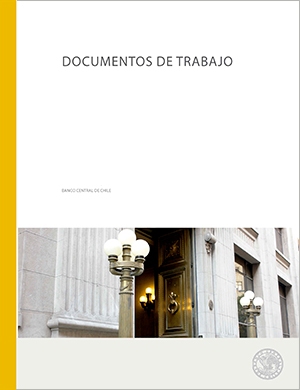Working papers N° 103: Seasonal cointegration and the stability of the demand for money
Publications
Working papers N° 103: Seasonal cointegration and the stability of the demand for money
Autor: Raimundo Soto , Matías Tapia
Description
Studies on money demand in both developed and developing countries coincide in reporting systematic over predictions of monetary aggregates, non-robust estimated parameters and out-ofsample forecast variances that are too large to guide monetary policy. Several explanations have been given for these failures, including dynamic misspecification, omitted variables such as financial innovations, and non observed components. This paper explores an alternative, simpler way to approach the instability of money demand using seasonal-cointegration techniques. Using Chilean data we find that seasonal cointegrating vectors exist and, when omitted from the estimation, account for a substantial fraction of the observed instability in money demand functions. Because seasonal cointegrating vectors act as additional long-run restrictions, they can substantially reduce the variance of forecast errors. The estimated demand for money in Chile is remarkably stable in spite of the profound structural and financial reforms carried out throughout the 1977-2000 period, parameters are robust and similar to those suggested by economic theories.
Working papers N° 103: Seasonal cointegration and the stability of the demand for money
Boxes and graphics

